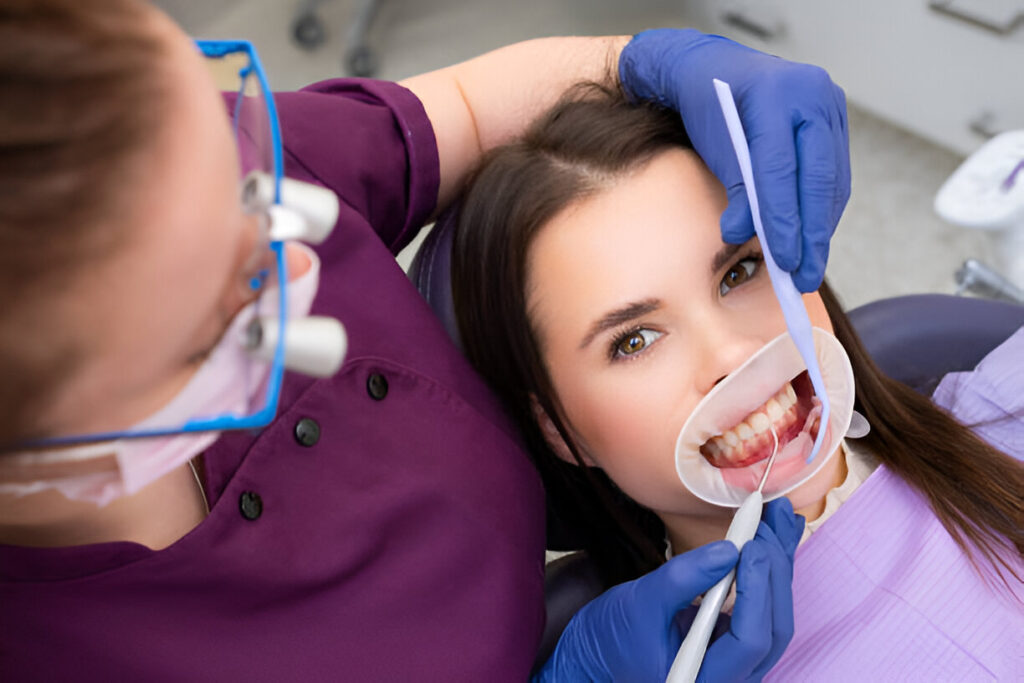A bright, healthy smile is more than just a symbol of good looks; it’s a crucial indicator of overall health and well-being. Regular dental care is essential not only for maintaining the aesthetics of your smile but also for ensuring the health of your teeth and gums, which can have far-reaching effects on your general health. Despite the obvious benefits, many people underestimate the importance of consistent dental care, often neglecting routine visits to the dentist until problems arise. This article explores the significance of regular dental care, the risks of neglecting it, and the steps you can take to maintain a healthy smile throughout your life.
The Foundations of Dental Health
At the core of a healthy smile are strong teeth and healthy gums. Good dental hygiene practices—such as brushing, flossing, and using mouthwash—are the first line of defense against common dental issues like cavities, gum disease, and bad breath. However, while at-home care is essential, it is not sufficient on its own. Regular visits to the dentist play a crucial role in preventing and managing oral health issues that can’t be addressed by brushing and flossing alone.
The Role of Professional Dental Care
Professional dental care goes beyond what you can do at home. Dentists and dental hygienists are trained to spot early signs of problems like cavities, gum disease, and oral cancer—issues that are often invisible to the untrained eye. Regular dental check-ups usually include:
- Professional Cleaning: Even with diligent brushing and flossing, plaque can build up on your teeth, leading to tartar (hardened plaque) that can only be removed by a professional. Dental hygienists use specialized tools to clean your teeth thoroughly, removing plaque and tartar from areas that are hard to reach with a toothbrush.
- Oral Examinations: During a routine dental visit, your dentist will examine your mouth for signs of decay, gum disease, and other potential issues. They may also perform oral cancer screenings, which are vital for early detection and successful treatment of this serious condition.
- X-Rays: Dental X-rays are an essential part of diagnosing problems that aren’t visible to the naked eye, such as cavities between teeth, impacted teeth, or issues with the jawbone. Early detection of these problems through X-rays can prevent them from becoming more severe and costly to treat.
- Preventative Treatments: Dentists can provide treatments that help prevent tooth decay and other issues. For example, fluoride treatments strengthen the enamel, making your teeth more resistant to decay. Sealants, which are thin coatings applied to the chewing surfaces of the back teeth, can prevent cavities in children and adults.
The Consequences of Neglecting Dental Care
Neglecting regular dental care can lead to a range of oral health problems, many of which can have serious implications for your overall health. Some of the most common issues include:
- Tooth Decay: When plaque is not removed regularly, it can lead to cavities, which, if left untreated, can cause tooth pain, infections, and even tooth loss.
- Gum Disease: Gum disease, or periodontal disease, begins with inflammation of the gums (gingivitis) and can progress to more severe conditions affecting the bone that supports the teeth. Untreated gum disease is a leading cause of tooth loss in adults.
- Bad Breath: Persistent bad breath, or halitosis, is often a sign of underlying dental problems such as gum disease, cavities, or plaque build-up. Regular dental care helps address these issues, improving your breath and overall oral hygiene.
- Oral Cancer: Regular dental check-ups are essential for the early detection of oral cancer, which can be life-threatening if not caught early. Dentists are trained to spot early signs of oral cancer, increasing the chances of successful treatment.
- Systemic Health Issues: Poor oral health is linked to several systemic health conditions, including heart disease, diabetes, and respiratory infections. Bacteria from the mouth can enter the bloodstream, potentially causing or exacerbating these conditions. Regular dental care helps reduce these risks by maintaining oral health.
Tips for Maintaining a Healthy Smile
To keep your smile healthy and bright, it’s important to combine good at-home care with regular professional dental visits. Here are some tips to help you maintain optimal oral health:
- Brush Twice a Day: Use fluoride toothpaste and a soft-bristled toothbrush to brush your teeth at least twice a day. Be sure to brush for at least two minutes, paying attention to all surfaces of your teeth.
- Floss Daily: Flossing removes food particles and plaque from between your teeth and under the gumline, where a toothbrush can’t reach. Make it a habit to floss at least once a day.
- Limit Sugary Foods and Drinks: Sugary foods and beverages contribute to tooth decay. Limit your intake of these items, and try to brush your teeth or rinse your mouth with water after consuming them.
- Stay Hydrated: Drinking water helps wash away food particles and bacteria, and it also promotes saliva production, which is essential for neutralizing acids and protecting your teeth.
- Visit Your Dentist Regularly: Make regular appointments with your dentist—ideally every six months—for professional cleanings and check-ups. This helps prevent problems and ensures that any issues are caught early when they are easier to treat.
Conclusion
Regular Dublin dental care is fundamental to maintaining a healthy smile and ensuring overall well-being. While good at-home practices are essential, they must be complemented by professional dental care to prevent and manage oral health issues effectively. By prioritizing regular dental visits and following a comprehensive oral hygiene routine, you can protect your teeth and gums, avoid serious health problems, and enjoy the benefits of a bright, healthy smile for years to come.


